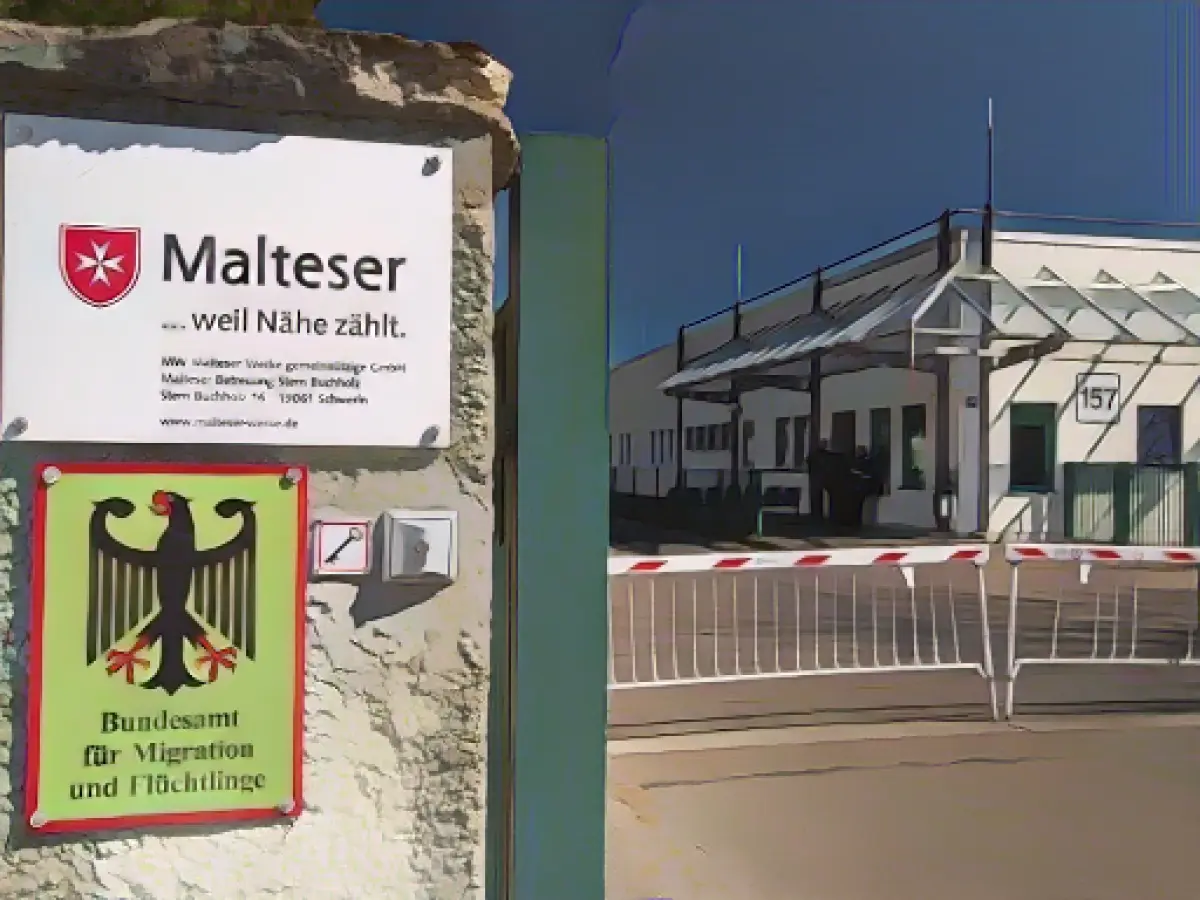Mecklenburg-Vorpommern Expands Asylum Seeker Housing Amidst Record Numbers
In response to the increasing number of asylum seekers, Mecklenburg-Vorpommern is broadening its reception capacities in initial reception facilities. Christian Pegel, the Interior Minister (SPD), has announced plans to erect containers on a former border troop site in Nostorf-Horst and renovate three blocks of flats in Stern-Buchholz that have not been utilized. This action comes as the current 1710 normal accommodation spaces at these sites are accommodating 1772 people, resulting in cramped living conditions.
The pressure on local authorities is mounting, as evidenced by the temporary housing of asylum seekers in a sports hall. The increased density of accommodation has led to this situation, with many districts requesting more initial reception capacities in the summer to prepare for the needed apartments and group accommodations.
Asylum Seekers on the Rise in Mecklenburg-Vorpommern
The rise in asylum seekers in Mecklenburg-Vorpommern is noteworthy, with almost 5,200 asylum seekers entering the state by October 2023. This number surpasses the total number of asylum seekers that entered the state in its entirety the previous year. It is also important to mention that around 5,000 war refugees from Ukraine have been granted temporary protection without applying for asylum.
Nationwide, the Federal Office for Migration and Refugees reported close to 267,000 first-time asylum applications at the end of October, exceeding the previous year's figure. This figure marks a significant increase in asylum seekers in Germany. To address this situation, political parties such as the AfD advocate for stricter border controls, including permanent ones, border rejections, and a determined fight against people smuggling, aiming to discourage further migration.
Action on Multiple Fronts
To meet the challenge of the rising asylum seeker population, various measures are being put in place. The German government, in collaboration with local authorities, is working to address this issue through initiatives like the Job Turbo Action Days. These events bring job-seeking refugees together with businesses, providing opportunities for entry-level, internship, and qualification roles.
Moreover, the Federal Employment Agency (BA) promotes the integration of refugees into the labor market by offering vocational training and supporting their search for employment opportunities. Digitalization of the approval process also plays a role in streamlining the overall process.
Asylum Policy Evolution
The asylum policy landscape in Germany has seen significant changes in recent years. During the European migrant crisis in 2015, Chancellor Angela Merkel encouraged cooperation among EU members and temporarily suspended the Dublin Regulation, allowing asylum applications from Syrian refugees entering Germany via other EU countries.
Currently, the European Parliament remains focused on asylum and migration policies, including the implementation of the Pact on Asylum and Migration and discussions related to humane and rights-based solutions for asylum seekers.
In conclusion, the increase in asylum seekers in Mecklenburg-Vorpommern is putting significant pressure on local authorities. The German government and local authorities are working together to improve integration services and provide adequate housing for asylum seekers. National policies like the Job Turbo Action Days and the Federal Employment Agency's initiatives aim to support the employment of refugees, alleviating the strain on local resources.








